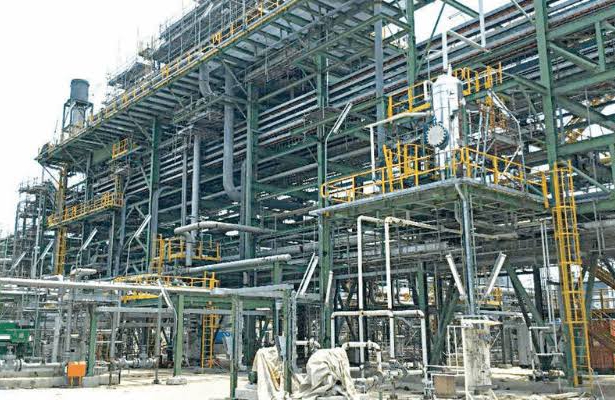One of the massive commercial product trade by the Nigeria economy is the crude oil. Nigeria is the second largest oil and gas producer in Africa, a major exporter of crude oil and petroleum products to the United States that is to say, Nigeria is Africa’s main oil producer with 18 operating pipelines.
Petroleum, also known as crude oil or simply oil, is a naturally occurring yellowish-black liquid mixture of mainly hydrocarbons, and is found in geological formations. The name petroleum covers both naturally occurring unprocessed crude oil and petroleum products that consist of refined crude oil. The hydrocarbons that exists in liquid phase in natural underground reservoirs and remains liquid at atmospheric pressure after passing through surface separately facilities.
Nigeria’s economy is heavily dependant on the oil sector which according to the world bank contribute 95% to export and 85% to government revenue. Crude oil is a raw natural resource that is extracted from the earth. It is one of the free gift of nature, refined into product like; gasoline, jet fuel, lubricant, kerosene and other products is called fractional distillation. The process is fairly simple but a powerful way to separate crude oil, first it is heated to vaporize and is fed into the bottom of a distillation tower, This process is carried out in a refinery.
An oil refinery is an industrial plant that transform, or refines crude oil into various usable petroleum products such as, diesel, gasoline, and heating oils like kerosene. The first step in the refining process is distillation, where crude oil is heated at extreme temperatures to separate the different hydrocarbons. The world first refinery was built in ‘ploiesti, Romania’ in 1856. Along side other refineries from United States companies. A private sector crude oil in Jamnagar, Gujarat, India. Reliance industries commissioned on July 1999 with a capacity of 668,000 barrel per day. The refinery now has a capability of 1,240,000 barrel per day, making it the largest in the world.
In consonance with, the fact that crude oil is free gift of nature. In Nigeria, oil reportedly first discovered in Oloibiri, Bayelsa state in Niger Delta 1956. According to the organization of the petroleum export countries (OPEC), Nigeria currently has the world’s tenth largest crude oil reserve and is the world’s thirteenth-largest producer of crude oil. Production started 1957 and in 1960 a total of 847,000 tonnes of crude oil was exported.
Despite being Africa’s biggest oil producer, Nigeria has to import refined petroleum products for its own use. Nigeria’s existing refineries, plagued by operational inefficient under growing control has failed to meet the growing demand for petroleum products, substantial imports have become necessary. Nigeria currently import more than 80% of its refined petroleum products.
At its first refinery at Alesa Eleme near Port Harcourt, began operations in late 1965 with a capacity of 38,000 barrels per day enough to meet domestic requirements at that time. Also, in 1978 the warriors refining and petrochemical company was commissioned with the capacity of 125,000 barrels per day . However, it is necessary to state that the geopolitics of oil influenced several decision made in the early years.
Nigeria joined the organization of petroleum exporting countries in 1971. By the mid 1970’s projections indicated that at the rate the economy was growing demand for petroleum product will outstrip production and so, the Warri refinery was completed and commissioned December 1977. Economic activities was growing rapidly both in the north and south. Up until the mid-1980’s, projection again indicated high demand of petroleum this gave rise to the establishment of other refineries.
Nigeria does have refineries, but they are not functioning at full capacity due, there are several reasons for this some of which includes corruption, poor management and among others. The body established to regulate and manage the oil in Nigeria is the Nigeria National Petroleum Corporation founded in 1977.
A prediction on Nigeria’s oil depletion based on Hubbery’s model and need for renewable energy show that, it is possible that Nigeria will still have oil for many years to come. However, there are several other factors that can affect the availability of oil in a country.
Nigerians may ask, why then subsidy? The government pays a portion of the cost of importing fuel at a lower level for consumers. The intention of this policy is to make fuel more affordable for Nigerians. However, this has greatly affected other sectors such as the educational sector, health sector, agricultural sector and more. Nigeria spend a significant amount of money each year on fuel subsidies, which could be used for other purposes. The effort of the current administration in order to remove subsidy, with some calling for its elimination and others arguing for its continuation has really being a controversial topic in Nigeria.
Choice of subsidy removal has both pros and cons to Nigerians. There are also environmental concerns associated with the policy. One of the primary advantages of removing fuel subsidy is that it would free up resources for other sectors of the economy. While on the other hand, it may cause protest, social rest, destruction of public properties, high cost of living, high cost of transportation etc. Looking at the brighter side, despite the ups and downs Nigeria is truly blessed with a gift like crude oil.
– Simon Beatrice
Prince Abubakar Audu University (PAAU) Anyigba, Kogi State




